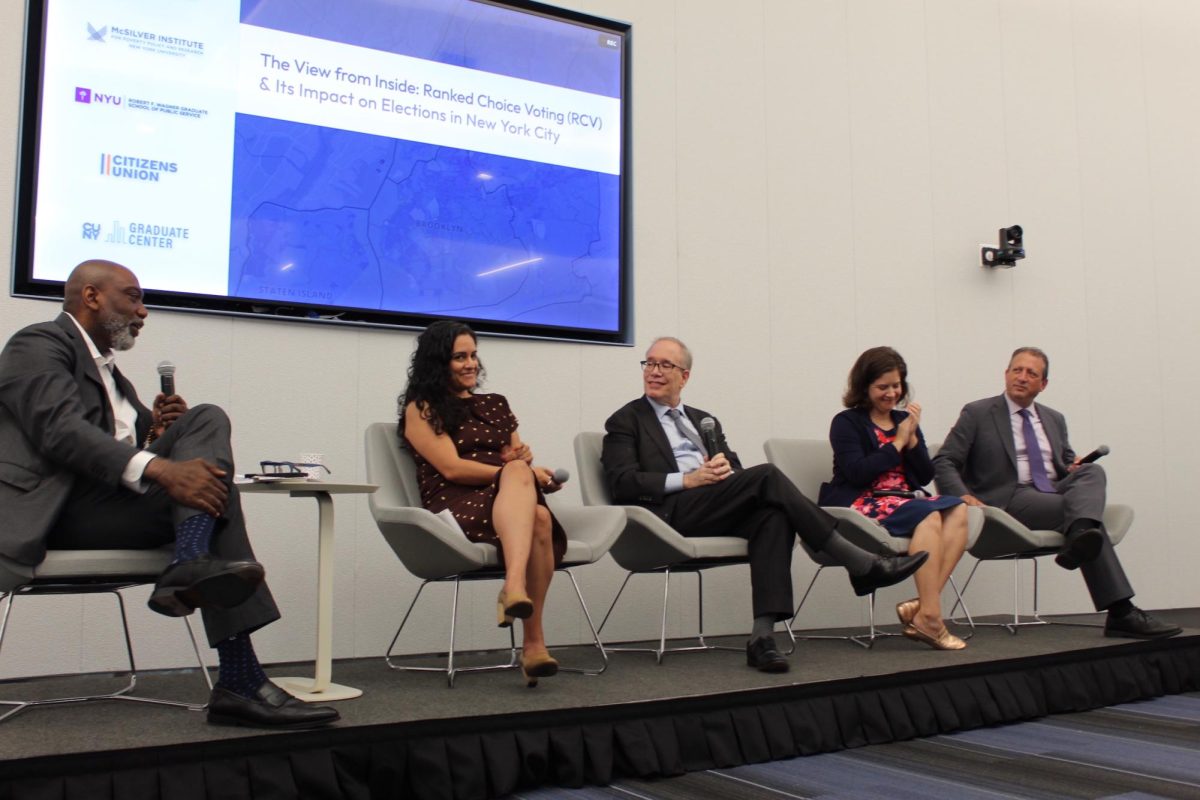Former New York City mayoral candidates Brad Lander and Scott Stringer joined former city council candidates Vanessa Aronson and Andrea Gordillo to advocate for ranked choice voting at a Tuesday morning panel held by NYU’s Robert F. Wagner Graduate School of Public Service.
Panelists drew from their campaign experiences during this year’s Democratic primaries — and shared occasional jabs at mayoral candidate Andrew Cuomo, who is now running as an independent candidate after losing to Zohran Mamdani.
“Ranked choice voting is very much alive in New York City,” Stringer, who formerly served as city comptroller, said at the panel. “The great thing about ranked choice, fundamentally, [is that] it engages people not simply to show up to vote. You can look at all the different candidates and not just choose No. 1, but also think about a full ballot.”
After newly appointed Wagner Dean Polly Trottenberg introduced the panelists, Steven Romalewski — director of the City University of New York’s mapping service — presented on ranked choice voting patterns in recent mayoral primaries. Executive director of NYU’s McSilver Institute for Poverty Policy and Research Rosemonde Pierre-Louis also gave introductory statements, while Susan Lerner, executive director of Common Cause New York, introduced the panel’s moderator Basil Smikle Jr., a professor at Columbia University’s School of International and Public Affairs and former New York State Democratic Party executive director, appointed by then-Governor Cuomo.
Steinhardt alum Adelaida Kim said she felt obligated to come to the panel as part of her civil duties.
“Young people have to come together and work towards a common goal,” Kim told WSN. “For me, public education and equitable education for all children about the upcoming election is one of the most important things.”
New York City has employed ranked choice voting for its major elections since 2021, giving voters the opportunity to order their selection of candidates. Election commissioners count all first choice options and eliminate the least popular candidate, until one individual receives more than 50% of the vote.
City Comptroller Lander admitted that although the voting system “really worked against us” in recent city elections, he still views it as a more democratic alternative to traditional ballots.
“Your votes, your voice, your action, your door knocking, can have a huge impact on politics,” Lander said in an interview with WSN. “There’s a lot of reasons to worry about the health of our democracy, but the role young people and students played in this year’s mayoral election is one reason to be optimistic.”
Stringer joined Lander in praising a surge in youth turnout in this year’s primaries. While details regarding the age distribution have not been publicized, a New York Times report indicated that numbers nearly doubled from 2021 — when only 18% of eligible voters aged 18-29 voted in the mayoral primaries.
“When young people vote, they change the outcome — we saw that at the Democratic primary,” Stringer told WSN. “The Mamdani campaign really energized a hidden electorate that we have not seen in politics for decades. That’s very positive, and it should be something that students should take seriously.”
Contact Eva Mundo at [email protected].

























































































































































